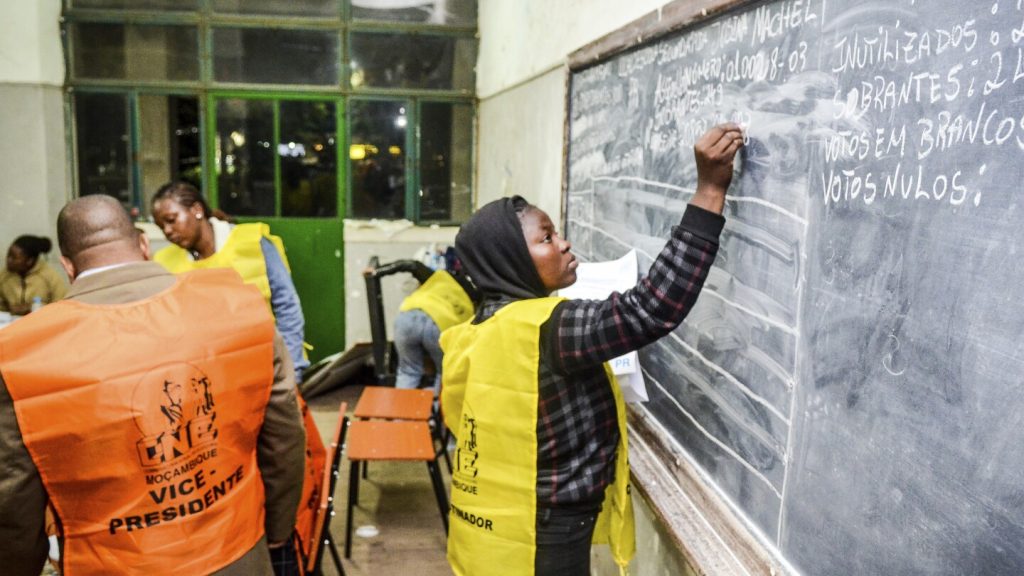Mozambique recently held a peaceful election for a new president, with vote-counting underway after polls closed. The ruling party, Front for the Liberation of Mozambique (Frelimo), has been in power for almost five decades and is expected to continue its reign with candidate Daniel Chapo as the favorite to succeed President Filipe Nyusi. Independent candidate Venancio Mondlane is also a strong challenger, resonating with young voters who are dissatisfied with issues such as unemployment and government corruption in the country. Despite concerns raised by opposition candidates about the voting process, including unsealed ballot boxes and denied accreditation for monitors, the election was deemed to have minimal problems by the European Union’s observer delegation.
Mozambique, with a population of 33 million people, is a country rich in natural resources and serves as a vital gateway for the region. However, the nation has faced challenges such as political instability, climate shocks, and a jihadi insurgency in the northern province of Cabo Delgado. This conflict has displaced hundreds of thousands and disrupted the economy, particularly affecting new natural gas projects. Despite these challenges, voting in Cabo Delgado proceeded amidst security concerns. Frelimo, a former liberation movement turned one-party state, has had a history of rigging elections and facing accusations of fraud. In 2019, violent unrest followed local elections swept by Frelimo, which was quelled by security forces.
The four candidates running for president include Chapo, Mondlane, Ossufo Momade of Renamo, and Lutero Simango of the Mozambique Democratic Movement party. In addition to the presidential race, Mozambicans also voted for Parliament members and provincial governors in the one-day election. The peace deal signed in 1992 between Frelimo and Renamo has been fragile, with outbreaks of fighting in 2013 leading to another agreement in 2019. The results of the election are eagerly awaited, with preliminary results from the 11 provinces expected to be released in the coming days. Final results must be ratified and officially declared by the Constitutional Council within 15 days of the election.
The head of the European Union’s observer delegation noted that while no major issues were reported on voting day, it was still too early to draw definitive conclusions about the overall fairness of the election. Mozambique’s election monitoring group, Sala da Paz, expressed concerns about denied access for party delegates to polling stations, hindering their ability to monitor the voting process. Despite these challenges, Mozambique remains a country with great potential given its natural beauty and abundant resources. As Mozambicans await the election results that will determine the country’s future leadership, the outcome will have far-reaching implications for the nation’s stability and development moving forward.


